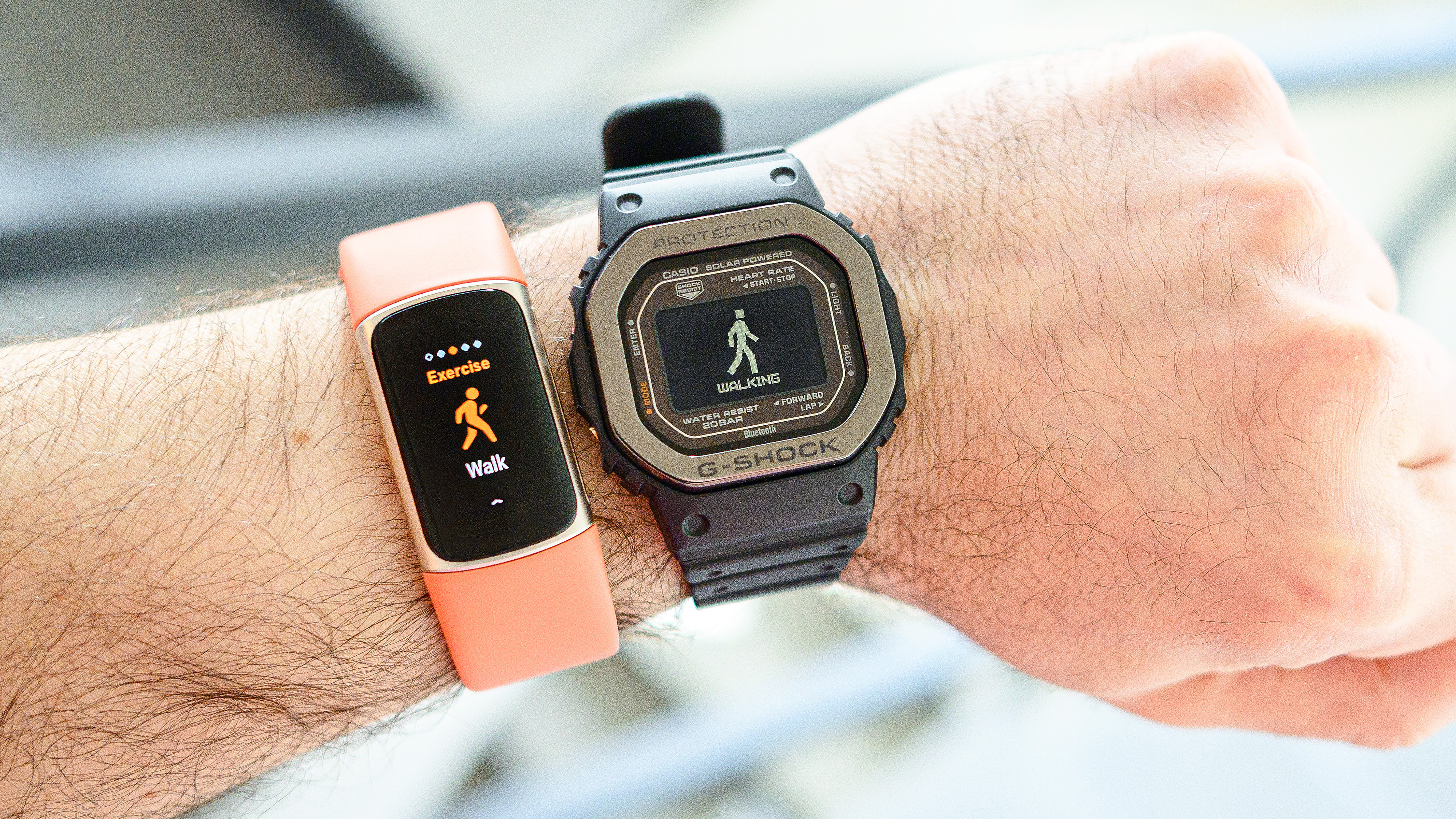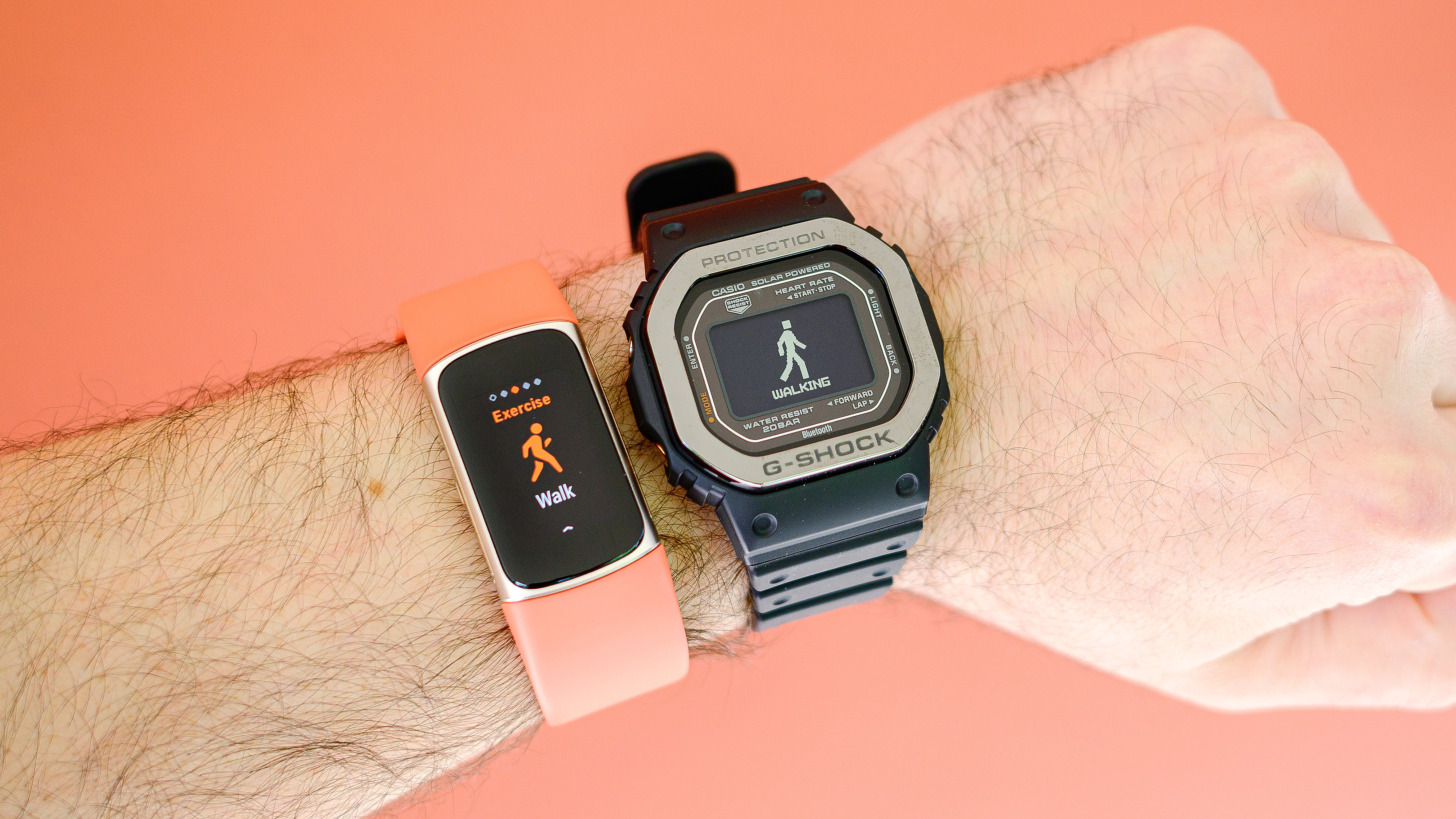
The Fitbit Charge 6 is seriously accurate when it comes to counting steps — it's also one of the best fitness trackers for most people. But how does it compare to the G-Shock Move DWH5600 which has also proven itself to be exceptionally accurate, besting even the Apple Watch SE in a recent head-to-head test?
I intended to find out. After all, both devices keep tabs on more than just steps but also heart rate, pace, distance and calories burned. Only the Fitbit Charge 6 has an onboard GPS — the G-Shock can piggyback off your smartphone’s connection — but both have onboard accelerometers to track movement.
At roughly $300, the G-Shock Move DWH5600 series is nearly twice the price of the Fitbit Charge 6. Outside of a cool design, what does that extra cost get you? For one, a noticeably tougher build quality. The G-Shock Move is shock-resistant and water-resistant down to 200 meters, making it suitable for scuba diving and snorkeling. By comparison, the Fitbit has just 50 meters of WR, which is good enough for brief periods of surface-level swimming.
You also get on-the-spot SpO2 readings, solar charging and better battery life. The Fitbit, on the other hand, offers handy smart features like support for Google Wallet and Maps. It also tracks a wider array of activities than the G-Shock.
Fitbit Charge 6 vs. G-Shock Move: Step accuracy test
To compare the step count accuracy of the two devices, I set out on a short afternoon walk with one tracker attached to either wrist. Oversized noise-canceling headphones ensured optimal concentration as I manually counted every 100 steps before clicking my old-fashioned tally counter and starting over at one.
Post-walk, I mapped my route using the Google Maps distance measuring tool, making sure to include any instances where I crossed streets or slightly altered my route.
Check out the results of the test below to find out which fitness tracker is more accurate, the Fitbit Charge 6 or the G-Shock Move.
Fitbit Charge 6 vs. G-Shock Move: The results
The results above surprised me a bit: Of all the walk test challenges I've participated in, this one may be the closest the data has matched up between two competing devices. Both were within 20 steps of my actual total with the G-Shock undercounting by 15 and Fitbit overcounting by 19.
The distance measurements were also quite close, though the Fitbit was 0.06 miles closer to the actual distance than the G-Shock. Even the 87-second discrepancy between average paces is fairly small potatoes compared to discrepancies we've seen in other recent showdowns.
Moving down the chart it warms my heart to such similar numbers when it comes to heart rate and calories burned. For what it's worth the G-Shock's tracking data is underpinned by Polar's exceptionally good algorithms and processing software.
Verdict: G-Shock wins

Ultimately, going by step count alone, the G-shock wins this matchup. However, the two devices largely spit out the same data points for this test, and the Fitbit was also closer than the G-Shock in terms of total distance traveled. Not by much, though.
Of course, it's not worth getting all that hung up on which tracker is the absolute most accurate. Instead, pick one that has the features and metrics you want, and stick with it. Need some help deciding? These are the best smartwatches and fitness trackers you can buy.







